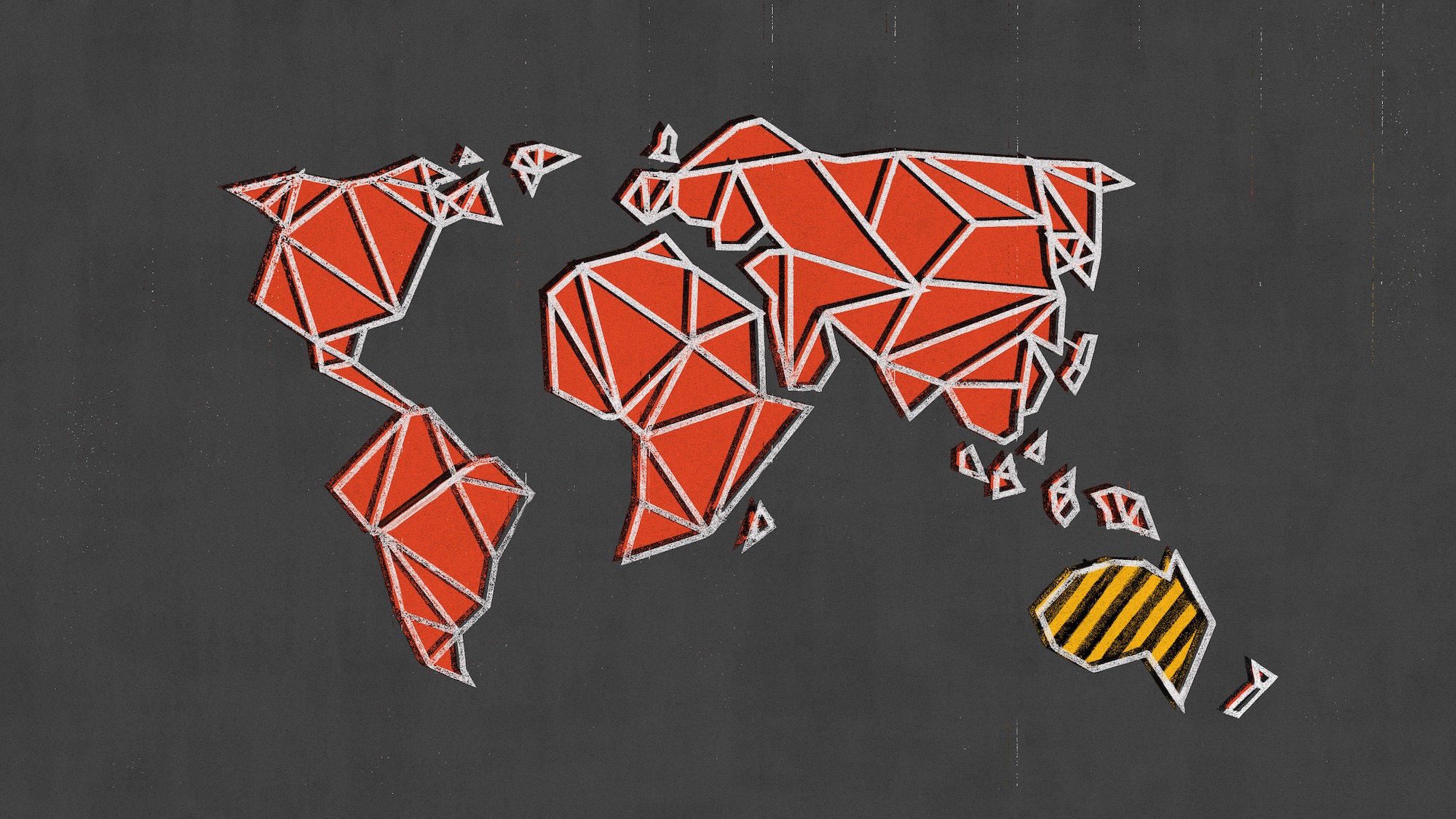
The resurgence of the nation state
Decades of unrestrained globalisation, the unchecked rise of the internet and the growing influence of multinationals have applied enormous pressure on nation states.
Decades of unrestrained globalisation, the unchecked rise of the internet and the growing influence of multinationals have applied enormous pressure on nation states.
However, the COVID-19 crisis strongly suggests that reports of the demise of the nation state have been greatly exaggerated. Responses to the pandemic have varied, but overwhelmingly they have been wholly national in character.
While border controls will eventually be lifted, it is unlikely there will be a full restoration of the global order, as it existed before COVID-19.
Public sector investment and control has been unleashed on an unprecedented scale and is here to stay for the foreseeable future. The pandemic has underlined the importance of public control of nationwide services that can cope with large scale emergencies: health care, emergency-response forces, the education system, airlines and public transportation. There has been widespread state coordination of private services such as cash machines, pharmacies and supermarkets.
The pandemic has emphatically underlined the vulnerability of global supply chains. Investments in advanced manufacturing, which promise to overcome the differential in global labour rates, are likely to target the localisation of production across a range of sectors to address the dependencies that the COVID-19 crisis has exposed.
Moreover, the pandemic has provided sustenance to a series of political trends that were already on the rise — nationalism, demands for protectionism and defunding of United Nations institutions.
It may be that the most lasting outcome of the global COVID-19 crisis is the revival of the nation state.
This is unlikely to be a reversion to the golden age of national sovereignty, but a new epoch in international geopolitics. History tells us that economic autarky is not conducive to innovation, crisis prevention or international harmony. And, if nothing else, the COVID-19 crisis illustrates that global cooperation is critical if the effects of such outbreaks are to be minimised.
The End of the Nation State is the title of two books (one by French diplomat Jean-Marie Guéhenno and another by Japanese strategist Kenichi Ohmae) as well as countless essays arguing that multinational bodies such as the European Union or the United Nations, or alternatively smaller regions and cities are likely to be increasingly the source of decision-making power and influence.
However, recent experience with the COVID-19 crisis strongly suggests that reports of the demise of the nation state have been greatly exaggerated. Responses to the pandemic have varied globally, but overwhelmingly they have been wholly national in character.
In nations across the globe, public authority has been exercised to impose restrictions on movement, close borders and deliver significant stimulus packages, with governments ruling by decree amid war-style rhetoric. In Europe, stimulus aid for businesses and public welfare has come from individual European nations, not the EU. In the US, the Trump administration sought to compel local manufacturer 3M to stop sending respirator masks to customers in Canada and Latin America, while repeatedly positioning the crisis as an occasion for competition rather than cooperation with China. In Australia, Prime Minister Scott Morrison recently told visiting visa holders and international students to return to their home countries. Each country’s “curve” has been endlessly compared with others as to whose response has been the best.
While border controls will eventually be lifted, there are several reasons to believe that it is unlikely that there will be a full restoration of the global order, as it existed before COVID-19.
Public sector investment and control has been unleashed on an unprecedented scale and is here to stay for the foreseeable future. This year’s forecast budget surplus of $5 billion in Australia is on track to be a deficit of at least $50 billion. Moreover, the pandemic has underlined the importance of public control of nationwide services that can cope with large scale emergencies: health care, emergency-response forces, the education system, airlines and public transportation. International airlines such as Alitalia in Italy and El Al in Israel have been effectively nationalized, as have hospitals, pharmaceutical supply chains and other means of production in some parts. Widespread state coordination of private services such as cash machines, pharmacies and supermarkets has occurred in Australia and abroad.
The pandemic has emphatically underlined the vulnerability of global supply chains. This is particularly acute with respect to the availability of medical supplies and drugs, however this is likely to extend to other essential goods and services, such as agriculture, education, construction and healthcare. Investments in advanced manufacturing, which promise to overcome the differential in global labour rates, are likely to target the localisation of production across a range of sectors in the years to come to address the dependencies that the COVID-19 crisis has exposed.
National security experts around the world have been placed on high alert. That the COVID-19 crisis, like the SARS epidemic before it, originated from the trade of exotic animals in a wet market in China, has prompted distrust of China as a global citizen. That China was slow to disclose the extent of the crisis to the world has substantially heightened suspicion of Chinese influence and investment in Australia and other Western nations. In the US, President Trump has repeatedly referred to the coronavirus as the “Chinese virus” in a transparent attempt to attribute blame overseas, dangerously straining relations between the world’s largest powers.
Moreover, the pandemic has provided sustenance to a series of political trends that were already on the rise — nationalism, demands for protectionism and defunding of United Nations institutions. The pandemic is likely to flame further President Trump’s xenophobic immigration policies, British Brexiteer nationalism and antipathy towards refugees fleeing warfare in the Middle East.
It may be that the most lasting outcome of the global COVID-19 crisis is the revival of the nation state.
This is unlikely to be a reversion to the golden age of national sovereignty, but a new epoch in international geopolitics. Such a resurgence will likely be attended by a set of risks of its own. Narrow-minded nationalism could arrest global trade and stymy international development as well as undermine international co-operation at a time when collective action is essential in the areas of climate change, public health and mass migration of people fleeing war-torn regions. History tells us that economic autarky is not conducive to innovation, crisis prevention or international harmony. And, if nothing else, the COVID-19 crisis illustrates that global cooperation is critical if future pandemics are to be avoided or the effects of such outbreaks minimised.
In the words of the Chinese proverb, we live in interesting times.
This is part of a series of insights related to Coronavirus (COVID-19) and its impact on business.
Image: Sebastiano Piazzi
Clinton Free is a Professor and Academic Director, Executive Education at the University of Sydney Business School. He is the Program Director for the Global Executive MBA.
Share
We believe in open and honest access to knowledge. We use a Creative Commons Attribution NoDerivatives licence for our articles and podcasts, so you can republish them for free, online or in print.







